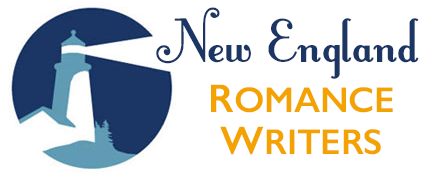Each year at the Let Your Imagination Take Flight Conference, we present the Goldrick Service Award to a deserving New England Chapter member.
The Goldrick, first awarded in 1996, is given in honor of the late Bob Goldrick who, along with his wife Emma, wrote as Emma Goldrick for Harlequin. They were longtime chapter members who generously volunteered their time, knowledge, and help to the chapter and their fellow members. Upon his death, it was decided to create a service award that would annually celebrate a member whose contribution to the chapter exemplified the service and cooperation among fellow writers that so characterized Bob’s legacy.
The Board encourages the membership to nominate any member they feel promotes the best of what the chapter is about, in particular those who have given their time, energy, and emotional/mental stamina to the chapter, especially those unsung members who so quietly give of themselves. Current Board members are not eligible.
The Board will review all the nominations and choose a recipient. The award will be presented to the winner in a special presentation during the conference.. There is no formal nomination submission process for the award. You can simply email or mail your nominations to any member of the board. However, please include a detailed statement as to why you have nominated a particular member since this will help the Board during the selection process.
If you have any questions, contact [email protected].
The board is looking forward to receiving your nominations.
Past award recipients are:
1996: Neringa Bryant and Jo Ann Ferguson (joint recipients)
1997: Terri Pino
1998: Blanche Marriott
1999: Betsy Eliot
2000: Michelle Drosos
2001: Lori Lotti
2002: Katy Cooper and Cindy Jachrimo (joint recipients)
2003: Barbara Wallace
2004: Lesley Mathews
2005: Jessica Andersen
2006: Liana Dalton
2007: Cathryn Parry
2008: Barbara Keiler
2009: Jessica Smith
2010: Tara Holt
2011: Hannah Howell
2012: Myretta Robens
2013: Valerie Harris
2014: Mary Reiber
2015: Sandy Tabor
